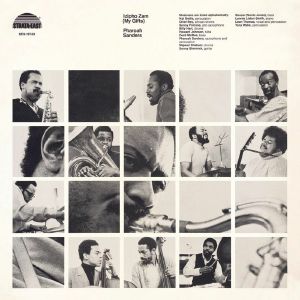Bestselling DJ equipmentBestselling DJ accessoriesLatest DJ equipmentNEWLatest DJ accessoriesNEWDJ-KopfhörerDJ turntablesDJ-DecksDJ-MischpulteDJ-ControllerDecksavers + coversDJ cartridgesDJ stylusesSchallplattenkistenPlattentaschenSchallplatten-ReinigungSchallplattenhüllen
DJ-Equipment
Styluses, cartridges & headshells
Vinyl DJ accessories
Digital DJ accessories
Record bags, boxes & trolleys
Vinyl DJ equipment bags & cases
Digital DJ equipment bags & cases
Vinyl sleeves, cleaning & storage
Slipmats
Decksavers & DJ equipment covers
PA & live sound
DJ lighting
DJ spare parts
Hi-Fi
Audio cables & adapters
MIDI & USB cables
Power supplies & cables
Computer accessories
DJ gifts & gadgets
Shop by brand
Gift vouchers
CD-KistenCD WalletsDecksavers + DJ equipment coversDJ Backpacks | Backpacks For DJ EquipmentDJ Controller Bags | Bags For DJ ControllersDJ Controller Cases | DJ Controller Flight & Carry CasesDJ Equipment Hard CasesDJ Workstations | Workstation Desks For DJsHeadphone Bags | Headphone PouchesHeadphone CasesLaptoptaschenLaptopständer
OhrhörerHiFi Amplifiers | HiFi Stereo AmpsHi-Fi Cartridges | Phono CartridgesHiFi HeadphonesHiFi SpeakersTurntable Styluses | Hifi StylusesHiFi Turntables | Record Players For HiFiNoise Cancelling HeadphonesMobile KopfhörerPortable Speakers | Portable Bluetooth SpeakersPortable turntables | USB turntables
1200 PlatesAcc SeesAIAIAIAllen & HeathAlphaAmerican AudioAudio InnovateAudio TechnicaBehringerCitronicDecksaverDenon DJDJ TechDr SuzukiEclerGeminiGoldringMackieMagmaMasterSoundsMobile FidelityMukatsukuNagaokaNative InstrumentsNumarkOdysseyOmnitronicOrtofonPioneer DJProjectQTXRaneReloopRolandSefourSennheiserSeratoShureStantonStokyoSubPacTechnicsTonarUDGVinyl StylZomo
Bestselling studio equipmentBestselling studio accessoriesLatest studio equipmentNEWLatest studio accessoriesNEWSynthesisersSynth modulesDrum machines | Buy analogue and digital drum machinesMIDI-Controller bei JunoMIDI-KeyboardsInterfacesStudiomonitoreStudio-KopfhörerSamplersSequencersEffects unitsEffects pedals
Synthesisers & synth modules
Drum machines
MIDI controllers & keyboards
Samplers & sequencers
Audio interfaces
Studio monitors & mixers
Studio headphones
Effects units & pedals
Compressors limiters & gates
Music software & VST instruments
Microphones
Studio amplifiers & preamps
Digital recorders
Guitar accessories
Kabel & Adapter
Cases, storage & stands
Studio accessories
Computer accessories
Gift vouchers
All microphonesVocal Recording MicrophonesInstrument MicrophonesMicrophones For Mobile Phone Recording | iOS & AndroidWireless Microphones | Wireless Microphone SystemsMeasurement MicrophonesGooseneck microphonesHeadworn Microphones | Headworn Microphone SystemsCamera Microphones | External Microphones For CamerasLavalier MicrophoneShotgun MicrophonesRecording Studio Microphone Accessories
Studio Soundproofing | Acoustic Soundproofing Panels NEWAudio Cable Testers NEWAudio Patchbays | Digital Audio Patchbays NEWCD-Reinigung & CD-EtikettenCD-Jewel Cases, CD-Sleeves und CD-TraysDecibel Meters | Studio Sound Level Meters NEWDigital Recorder AccessoriesMIDI converters & accessoriesStudiozubehörStudio Equipment Replacement & Spare PartsRecording Studio Vocal Booths | Vocal Isolation Booths NEW
Vinyl care & hi-fi
BestsellingSchallplatten-ReinigungSchallplattenhüllenHifi StylusesHi-Fi CartridgesTurntable HeadshellsVinyl storage45 AdapterVinyl Record WeightsSlipmatsTurntable AccessoriesVinyl FramesHiFi TurntablesPortable turntablesHiFi SpeakersHiFi HeadphonesOhrhörerMobile KopfhörerNoise Cancelling HeadphonesPhono PreampsPlattentaschenSchallplattenkistenCD-Jewel Cases, CD-Sleeves und CD-TraysBücherMagazine
Hilfe
BestellenProbleme beim BestellenHäufig gestellte FragenKontaktiere unsKontaktiere uns (Lieferanten)Über JunoJuno DailyNeuerscheinungen dieser WocheDJ & Studio StoreTagsFeedbackDatenschutzregelungReturns & refundsAGBFinanceJuno Vinyl DistributionJuno Vinyl WholesaleJuno Marketing and PR departmentPromote your label / releases
100% Sicheres Einkaufen
Studio equipment
Our full range of studio equipment from all the leading equipment and software brands. Guaranteed fast delivery and low prices.
100% Sicheres Einkaufen
DJ equipment
Our full range of DJ equipment from all the leading equipment and software brands. Guaranteed fast delivery and low prices. Visit Juno DJ
Bestseller: Absteigend sortierenArtist: Alphabetisch sortieren (absteigend)Title: Alphabetisch sortieren (aufsteigend)Title: Alphabetisch sortieren (absteigend)Label: Alphabetisch sortieren (aufsteigend)Label: Alphabetisch sortieren (absteigend)Date: Nach Alter sortieren (absteigend)Date: Nach Alter sortieren (aufsteigend)Price: Nach Preis sortieren (aufsteigend)Price: Nach Preis sortieren (absteigend)Label rank: Low to highLabel rank: High to low
Filter
Genre wechseln
All genres
Balearic/Downtempo
Bass
Breakbeat
Classical
Classical
Modern Classical
Disco/Nu-Disco
DJ Tools
DJ-Equipment
Drum And Bass
Dubstep
Deep Dubstep
Dirty Dubstep/Trap/Grime
Electro
Euro Dance/Pop Dance
Footwork/Juke
Funk Soul & Jazz
Broken Beat/Nu Jazz/Nu Soul
Funk
International
Jazz
Soul
Hardcore/Style
Gabba
Hardstyle
UK Hardcore
Hip Hop/R&B
House
Deep House
Electro House
Funky/Club House
Hard House
Minimal/Tech House
Progressive House
Scouse House
Leftfield
Ambient/Drone
Coldwave/Synth
Experimental/Electronic
Industrial/Noise
Library/Archive
Soundtracks
Pop
Reggae
Dancehall/Ragga
Dub
Klassiker/Ska
Roots/Lovers Rock
Rock (All)
50s/60s
Blues
Folk/Americana
Indie/Alternative
Metal
Post Rock/Experimental
Progressive Rock
Psych/Garage Rock
Punk/Hardcore
Rock
Studio Equipment
Techno (Alles)
Hard Techno
Techno
Trance
Hard Trance
Pop Trance
Psy/Goa Trance
Uplifting Trance
UK Garage
Bassline
UK Garage
Ansicht wechseln
Bestseller-Charts
DJ Charts
Gesamtkatalog
Juno Recommends
Klassiker
Kommt bald
Preorders
Veröffentlichungen der letzten 2 Wochen
Veröffentlichungen der letzten 4 Wochen
Veröffentlichungen der letzten 8 Wochen
Veröffentlichungen dieser Woche
Veröffentlichungen seit meinem letzten Besuch
Veröffentlichungen von heute
Wieder erhältlich
Stock
Artist
Featured
Release Title
Back catalogue: Jazz
Juno's full catalogue of Jazz
Options
Artist: Alphabetisch sortieren (aufsteigend)
- Bestseller:
- Absteigend sortieren
- Artist:
- Alphabetisch sortieren (aufsteigend)
- Alphabetisch sortieren (absteigend)
- Title:
- Alphabetisch sortieren (aufsteigend)
- Alphabetisch sortieren (absteigend)
- Label:
- Alphabetisch sortieren (aufsteigend)
- Alphabetisch sortieren (absteigend)
- Date:
- Nach Alter sortieren (absteigend)
- Nach Alter sortieren (aufsteigend)
- Price:
- Nach Preis sortieren (aufsteigend)
- Nach Preis sortieren (absteigend)
- Label rank:
- Low to high
- High to low
Alben
Review: Pharoah Sanders' Izipho Zam (My Gifts) was first recorded in 1969 but wasn't released until 1973; a monumental yet, despite the name, little-received jazz work, we can still hear the legendary jazz-musical theocrat push the boat ever further out psychically and sonically here. Produced by Stanley Cowell and Charles Tolliver's Strata-East label, the album was recorded at Town Sound Studios, two years after Sanders' mentor John Coltrane's death. Coltrane's passing marked a significant turning point for Sanders, who saw in the saxophonist the unopened buds of a spiritual path for music, expressible in jazz. The Zulu phrase used in the title is regularly heard in Mozambique, Eswatini and Zimbabwe, reflecting the cultural emphasising of gifting in East Africa.
… Read more in stock $14.58
Options
Hilfe & Information
BestellenProbleme beim BestellenHäufig gestellte FragenKontaktiere unsKontaktiere uns (Lieferanten)Über JunoJuno DailyNeuerscheinungen dieser WocheDJ & Studio StoreTagsFeedbackDatenschutzregelungReturns & refundsAGBFinanceJuno Vinyl DistributionJuno Vinyl WholesaleJuno Marketing and PR departmentPromote your label / releasesJuno-Angebot
Juno DailyKommt baldGeschenkgutscheineKlassikerCharts erstellenRepressesVollständige LabellisteTop-LabelsMein Juno
My artists and labelsMeine „Wieder auf Lager”-BenachrichtigungenMein KontoMein WunschzettelMeine ChartsMeine „Neuerscheinungen”-BenachrichtigungenMeine BestellhistorieMeine „In Kürze”-Benachrichtigungen100% Sicheres Einkaufen
DJ Mag Best Of British
Best Music Store: 5 time winners
© 1996 - 2025 Juno Records
All image and audio content is used by permission of the copyright holders or their agents, and/or according to fair dealing as per the UK Copyright, Designs and Patents Act 1988.
We'd like to know what you think of Juno's website. Please send us your comments and suggestions via our feedback page.
This website uses cookies
We use cookies to personalise content and ads, to provide social media features and to analyse our traffic. We also share information about your use of our site with our social media, advertising and analytics partners who may combine it with other information that you've provided to them or that they've collected from your use of their services.Necessary
Statistics
Marketing

 USD
USD






